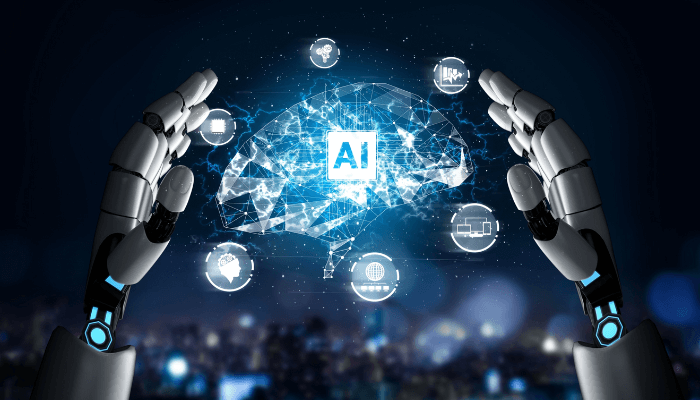Artificial Intelligence (AI) is no longer a concept confined to science fiction or a distant future; it is an intrinsic part of our daily lives, shaping various sectors with its capabilities. To navigate the landscape of AI effectively, it’s crucial to understand its three primary types: Narrow AI, General AI, and Superintelligence. Each type portrays a distinct development stage of AI technologies, and understanding these can aid businesses and individuals as they plan for the future.
Narrow AI: The Specialized Worker
Narrow AI, often referred to as "Weak AI," is designed to perform specific tasks exceptionally well but lacks the capacity for generalized understanding. For instance, when your smartphone analyzes your spending patterns to recommend budget adjustments or when chatbots on platforms like WhatsApp handle customer inquiries, that’s Narrow AI in action.
In Nigeria, examples abound:
- Fraud Detection: Banks utilize Narrow AI algorithms to spot unusual transaction patterns and prevent fraud.
- Personalized Recommendations: Streaming services like Netflix and YouTube employ Narrow AI to suggest content tailored to user preferences.
- E-commerce Assistance: Online retailers analyze user browsing history to present relevant product suggestions.
The efficacy of Narrow AI lies in its specialized knowledge, capable of processing vast amounts of data and improving operational efficiency. It’s an affordable option for Nigerian organizations, streamlining tasks across agriculture, finance, and logistics, leading to cost reduction and enhanced productivity.
General AI: The Aspiring All-rounder
General AI, or "Strong AI," represents the next evolution of artificial intelligence, capable of performing a wide range of tasks and adapting to new challenges. Imagine an AI that seamlessly transitions from designing marketing campaigns to predicting market trends, much like a skilled multitasking individual. However, General AI remains hypothetical; despite ongoing research and optimistic projections, it has yet to be realized.
The potential impact of General AI on industries is immense. For instance, in healthcare, General AI could evolve into a diagnostic companion that adjusts treatment plans based on real-time patient data. In education, adaptive AI tutors could provide personalized learning experiences that cater to every student’s individual pace and style.
Nigerian leaders should actively prepare for General AI’s inevitable arrival by investing in digital infrastructure and workforce training. By doing so, they will position local businesses to leverage the forthcoming transformative capabilities of AI.
Superintelligence: Beyond Human Aptitude
At the apex of AI development lies Superintelligence—a form of intelligence that not only matches human cognition but far surpasses it in creativity and problem-solving abilities. Here, we enter territory that raises both excitement and existential concerns.
Imagine an AI capable of discovering new medical cures in mere days or optimizing financial markets to make traditional banking models obsolete. Such capabilities present profound questions about the potential benefits and risks of superintelligent systems. The central challenge lies in developing frameworks to ensure that these advanced AIs serve humanity rather than endanger it.
As the global discussion about AI governance intensifies, leaders across continents—including Africa—are beginning to recognize the urgency in addressing the ethical, safety, and operational implications of AI. Nigeria’s involvement in shaping these discussions is crucial to protect its national interests.
Implications for Nigerian Businesses
For business leaders, understanding the distinctions between these three types of AI is essential in strategizing for the future.
Harnessing Narrow AI: Companies are recommended to incorporate Narrow AI technologies into their operations immediately. This introduction can lead to substantial efficiency improvements and cost savings.
Preparing for General AI: As General AI edges closer to reality, it’s vital for businesses to invest in updating their technology infrastructure and workforce skills.
- Engaging in Superintelligence Discussions: As we venture into the realm of Superintelligence, policy-making and ethical considerations must be prioritized. Discussions should focus on how to govern such an AI while safeguarding Nigeria’s social and economic frameworks.
Final Thoughts
AI is an evolving journey rather than a destination. We stand at a critical juncture where the advancements in AI can either fortify our systems or disrupt traditional frameworks.
For Nigeria, this is not just a technological challenge but a unique opportunity. The potential for AI to revolutionize healthcare, education, agriculture, and governance is immense, provided we approach it with courage, foresight, and commitment.
The urgency of the situation is evident: AI will advance whether we are prepared or not. The pressing question remains whether Nigerian businesses and leaders are ready to engage proactively with this change or if they will be left in the wake of global advancements.
In conclusion, as we forge ahead in the business landscape shaped by AI, it is vital to remain informed and engaged, emphasizing local research, education, and policy that align with national interests and community well-being.
By positioning ourselves effectively now, we can ensure that Nigeria is not just a participant in the AI revolution but a leader in it.









